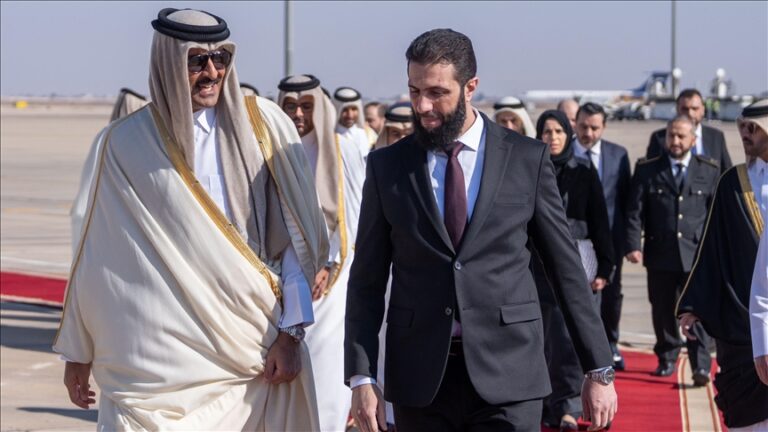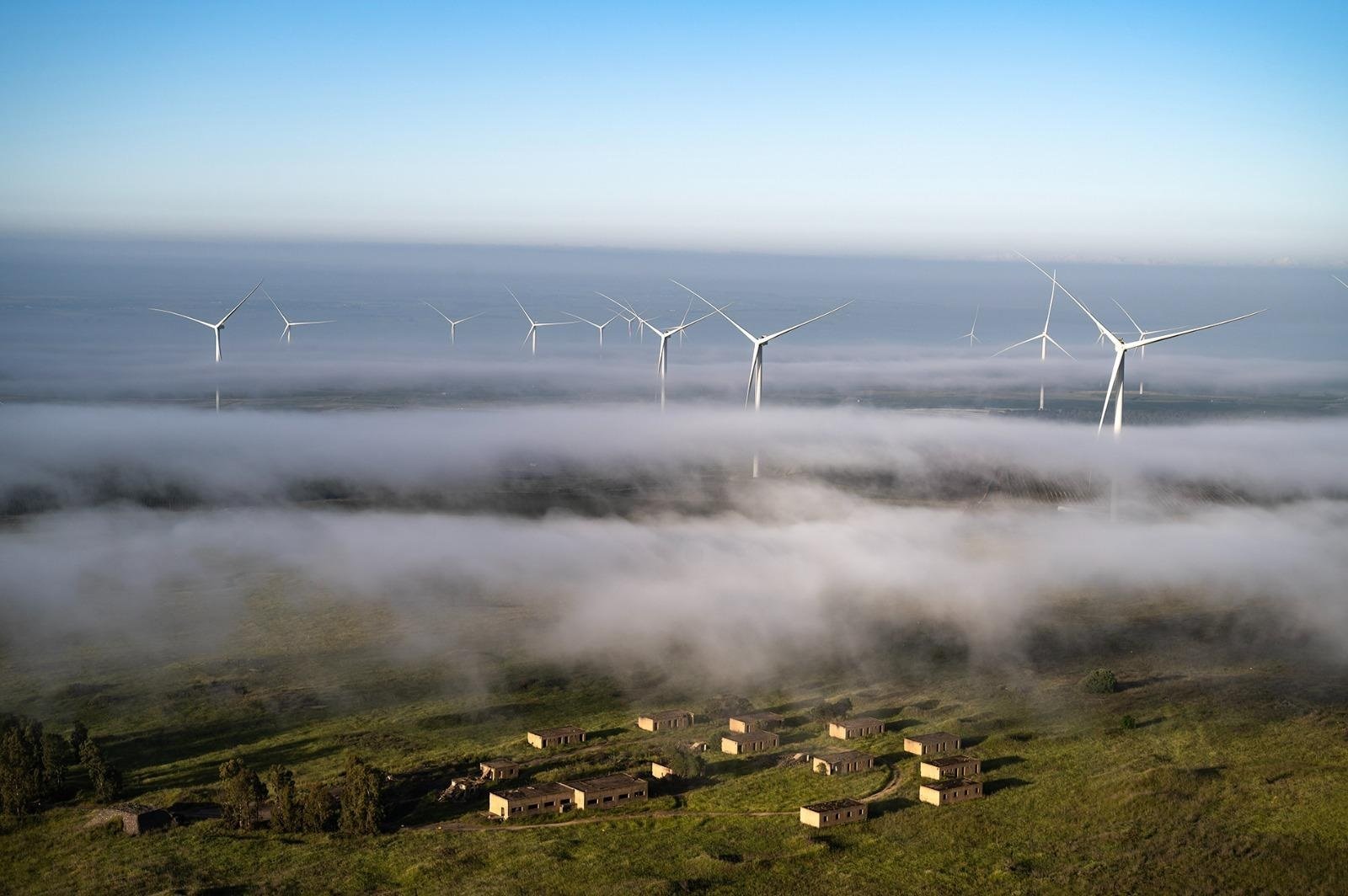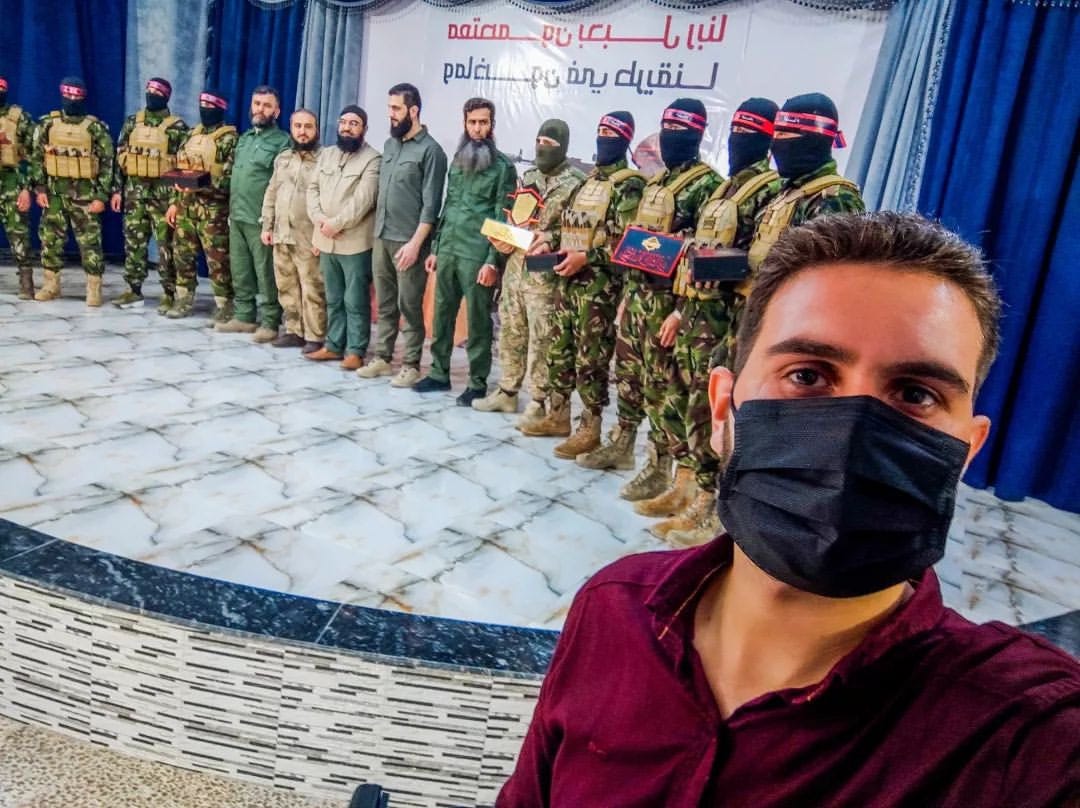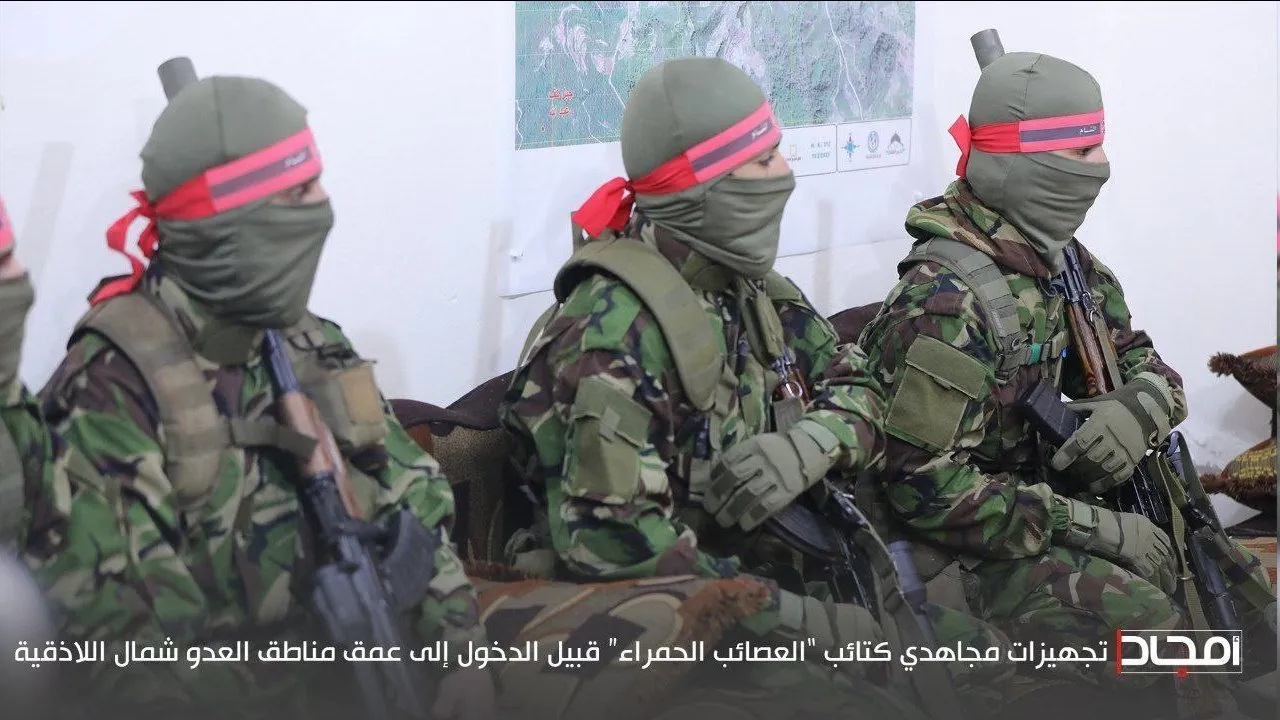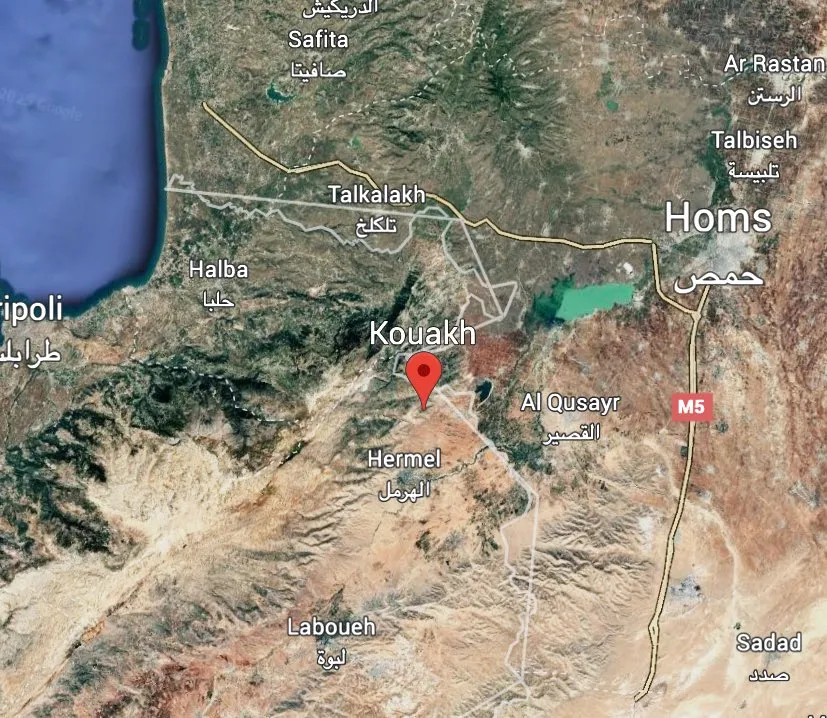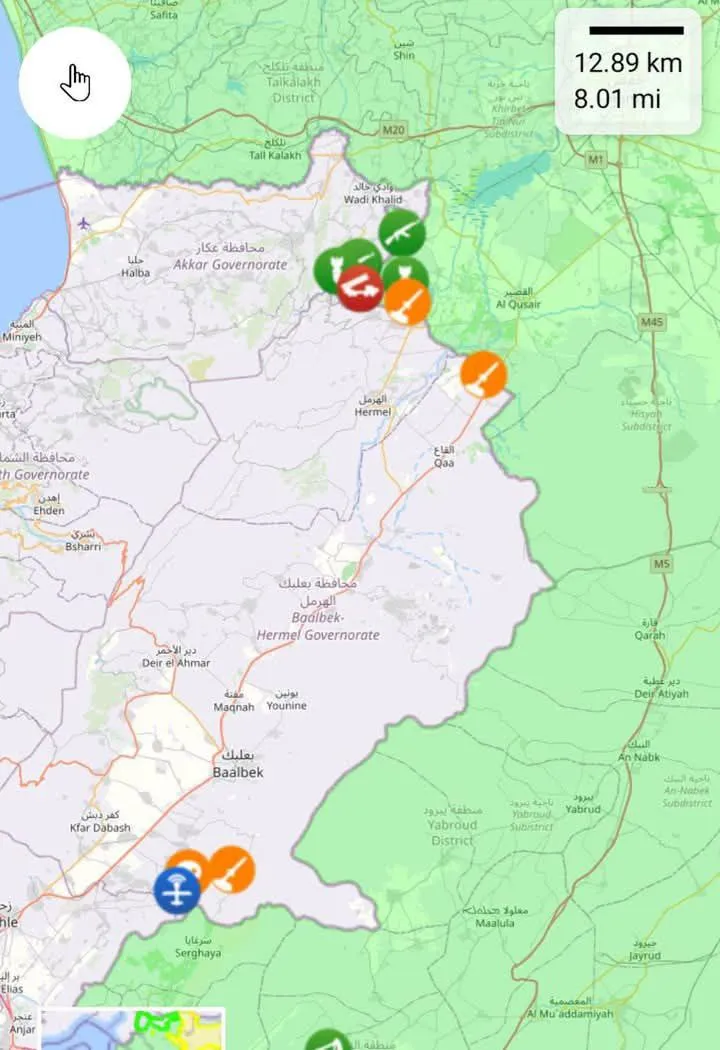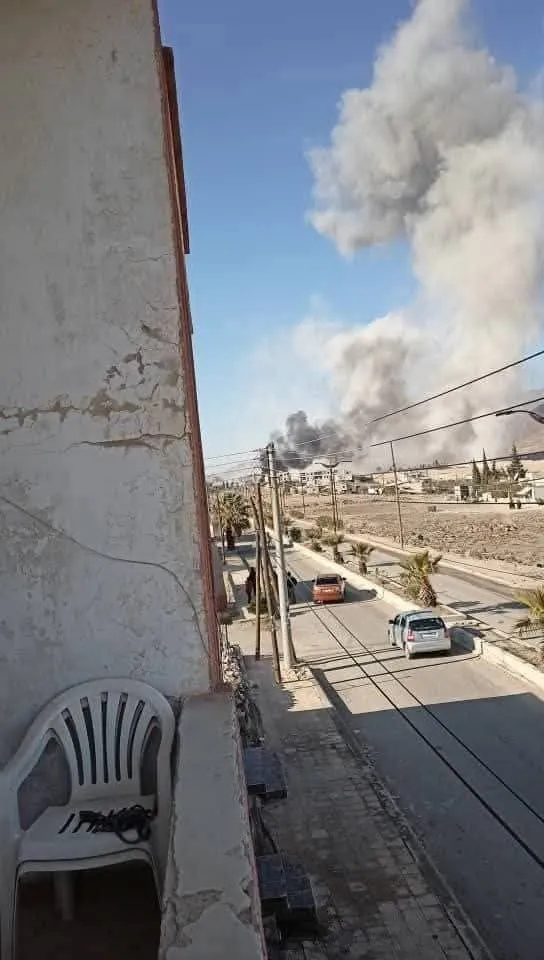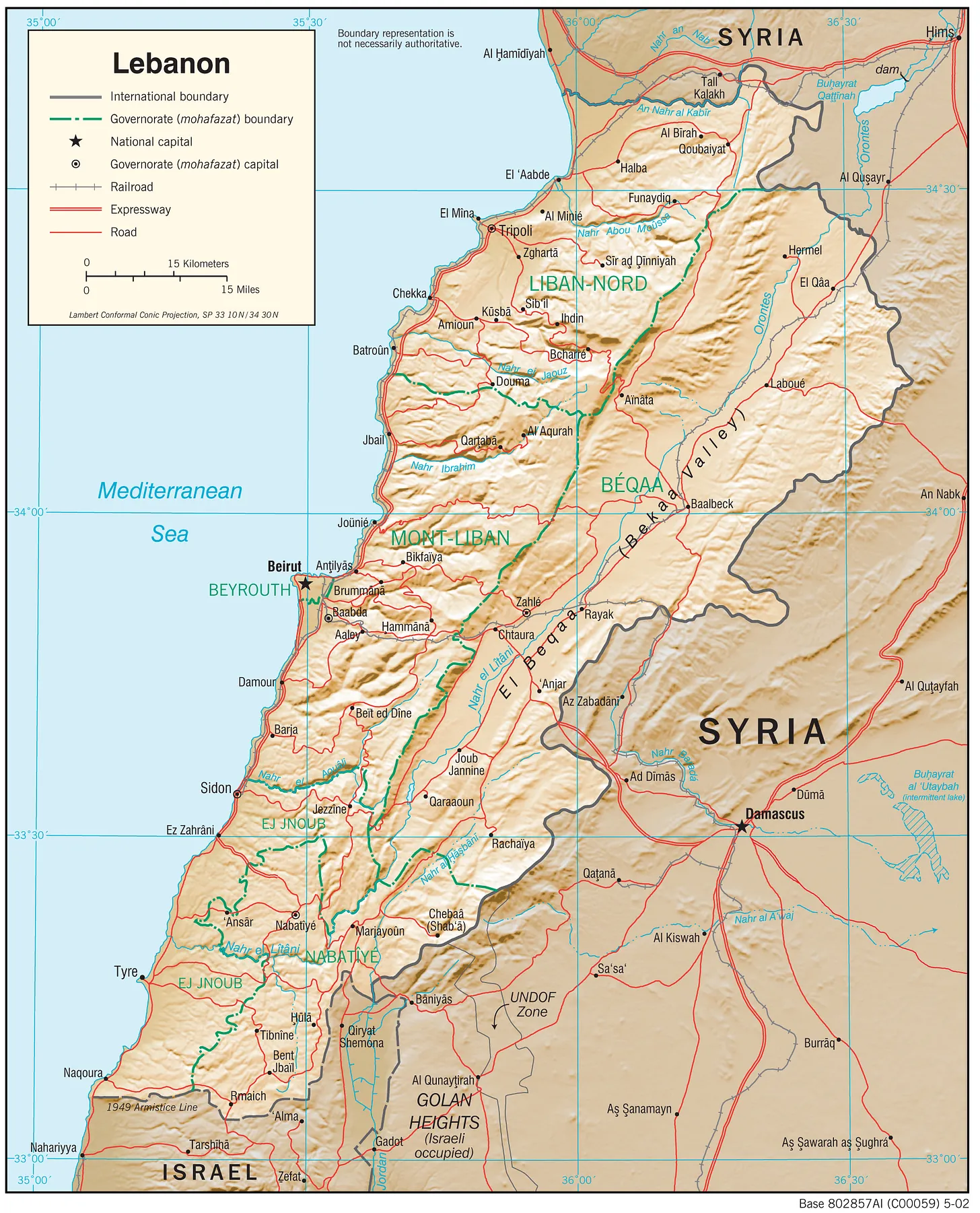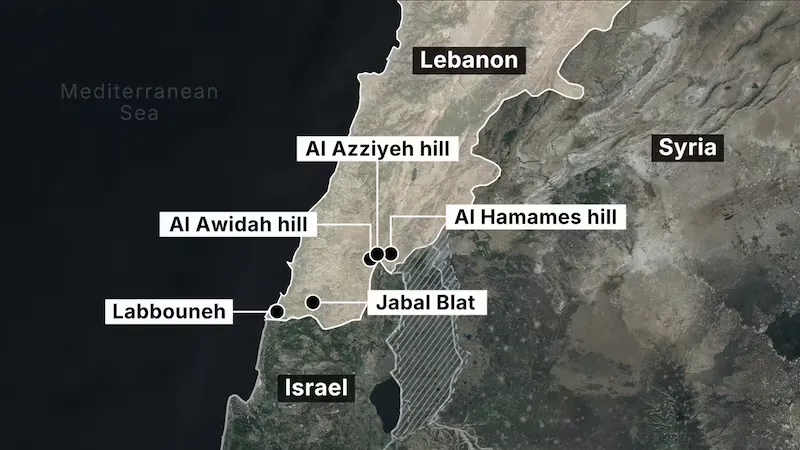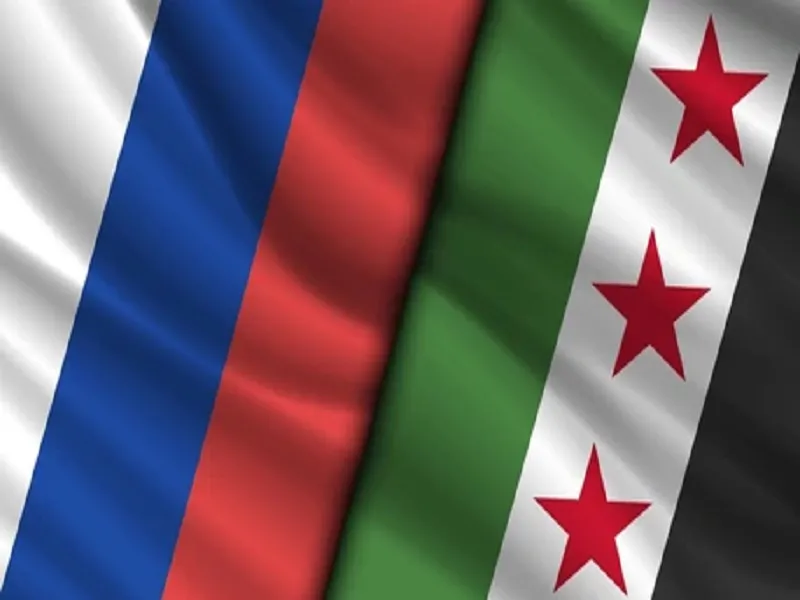Posted by Internationalist 360° on January 19, 2025
Marinella Correggia
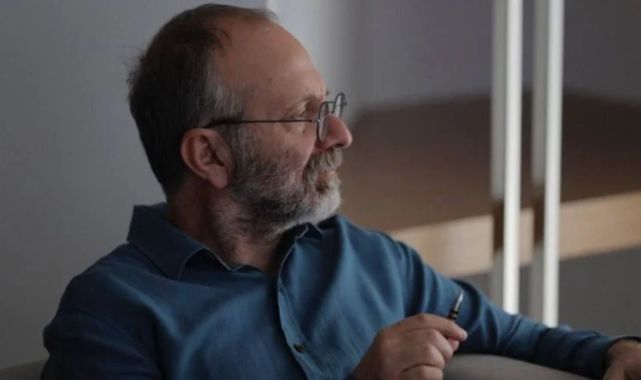
Interview with TKP General Secretary Kemal Okuyan about Syria on Italian News Portal Il Manifesto
– About this sudden change in Syria. Turkish Foreign Minister, said he had convinced Russia and Iran in Doha not to intervene on the side of the Syrian government, otherwise it would have been a bloodbath. It means that militarily the Russian and Iranian forces would have to face huge weaponry and mercenaries supplied by forces outside the country. Which ones?
All these preparations were made in Idlib. Idlib had been left under the control of Turkey during the Astana talks, and the AKP government had vowed to purge the region of terrorists. We know that Russia has expressed its concerns on this issue from time to time, but nothing has changed in the end. In any case, it is not possible for either the UK or Israel to send weapons there without Turkey’s knowledge. It is also impossible for Russian and Iranian intelligence not to notice all these preparations. But they did not grasp the seriousness of the situation. I cannot say they turned a blind eye, both countries were hit hard in the end. It was also ensured that the Syrian Army would not resist. Officers were bought, and inside sleeping agents were activated. The economic conditions in Syria had already diminished faith within the army. Therefore, when the Turkish Foreign Ministry told Russia and Iran, “Do not intervene unnecessarily, this is over,” after the operation began, it was really over. Now we see that the Russian side is criticizing Assad. Russia spent the past few years trying to persuade Assad to meet with Erdoğan. Hence, it was clear that Putin was not eager for a new conflict in Syria. Many sources were already saying that Russia would step back in Syria to get what they wanted in Ukraine. Syria fell before the table was set for Ukraine. I already thought that, in Syria, Russia would not confront the bloc formed by Israel, the USA, the UK and Turkey any way. Things went in this direction. The same goes for Iran.
– Now Syrians, impoverished and exhausted by years of bloody war and terrorism, huge sanctions, inflation, and also afraid, seem to welcome the former terrorists or at best to remain silent. Does the ongoing “nazification” of Assad by huge media play a role on this?
No one can say that Assad and the Baath regime in general had a brilliant record in terms of both economy and freedoms. Thus, we cannot claim that everyone who rejoices at the fall of Assad is a US agent or a jihadist. We know that the situation of the people did not improve, especially during the period when the intensity of the war decreased. It is obvious that there was also a loss of faith among the administration’s supporters. However, once Damascus fell, certainly, many people in various cities of the country would start to prefer the Assad administration to HTS. So what happened to these people? They are unorganized, tired and anxious. They are trying to hold on to life and hope that “maybe it’s not that bad.” The jihadists are well trained. They know that if they do not act patiently, there will soon be major opposition. They do not have the numbers and organization to repel these opposing people. Now they are taking over the state and they will achieve this strength in time. Then they will behave more comfortably. Now they will present a photo that will please CNN and similar imperialist media. Tomorrow, no one will care about women, Alevis, revolutionaries…
– Erdogan and his Akp, have played a central role in the war in Syria since 2012, as a power that let the jihadists enter Syria coming from half of the world, trained them (still) and with its proxies later kept control and occupied part of the Syrian army. Your party and the Peace association denounced it.
Yes, as a party, we resisted this process from the very beginning, when everyone was obsessed with the “Arab Spring” and there were celebrations of “a revolution is happening”. Jihadists from different countries were trained by NATO countries right before our eyes. The British set up studios in Turkey to prepare fake Syrian footage. Ten years ago they failed. They kept preparing and eventually got it done.
– Which purpose drives Erdogan? A neo-ottoman region? And what links with Israel/US plans? And Qatar, another main player in the war in Syria with his money?
Neo-Ottomanism is the fixed ideology of Erdoğan and his friends. They never give up on this. With this, they are trying to bring together international balances and the alliance with the USA. Sometimes there is tension, but now it is clear that a new era of convergence and cooperation has begun between US and Turkey. Undoubtedly, the aspirations of Turkey’s capitalist class lies behind this. These aspirations actually connect Turkey to the USA, the UK and Germany, and also cause it to take new and distinctive initiatives. The Qatari capital really uses Turkey as a springboard. On the other hand, they have also made important investments in Turkey. We call these the reactionary coalition. They love each other very much and the money flowing in and out…
– The jihadists now in Syria were instructed to be “kind” and are well seen by media and foreign powers. But the violence is there and how to forget their terrorist beheading background? What perspectives do you see for Syria (total islamization? Balcanization?) and Lebanon, Iran?
Jihadism is a reactionary ideology, but it must be said that it is a modern force in terms of adapting to capitalism. They have a pragmatic approach that understands business and making profit. But capitalism itself is barbarism. So here two barbaric dynamics intertwine. Nothing good will come out of this for the people of Syria. Even if Syria does not fall apart, it will have a fragmented structure and there will be endless conflicts. On the other hand, we can think that the imperialist peace will include those conflicts in Syria and manage them for a while. A chaotic stability. Next… What happens next depends on the revolutionary dynamics in the region. At this point, till internal dynamics of Syria start functioning, Syria will be highly effected by the developments in Turkey, Lebanon, Iraq and Iran, but most of all, by the developments in Turkey. Because the biggest damage to Syria was done by Turkish capitalism and reactionism.
– What about Turkiye and the Kurds?
Turkey’s Kurdish issue is a problem that can be solved internally of course on a class based struggle. Yet, some people think that it is the Kurds’ right to establish a large and united state by disintegrating Iran, Iraq, Syria and Turkey. The world is not the world of a hundred years ago, and they are probably not aware of what that means, or they are aware but do not care. Such a goal will yield no result other than endless bloody conflicts and the further strengthening of the presence of US imperialism and Israel. Some say that Erdoğan is taking precautions against this possibility. No. The AKP government’s moves aim to intervene in the region using “terrorism” as an excuse. It is also important to know that the USA persuaded Turkey to cooperate by using Kurdish groups in Syria and Iraq. This tactic, “If you don’t cooperate, there will be Kurds”, has been working for years. Currently, all of the actors effective on the ground in Syria are openly or covertly cooperating with the USA and Israel. This is a shame for all of us. Ultimately, Turkey will come to an agreement with the Kurdish entity at some point. It did this in Iraq. The KDP administration in Iraq is a very close ally of Turkey, the USA and Israel. Money shapes everything. Turkey’s bourgeoisie does not ask for ethnicity or religion-sect while investing in all these regions.
– What could be the role of communists in the Middle East? Only that of a witness, or perhaps of an oppressed force?
If the communist movement in the region is to make a leap forward, it must break away from past stereotypes and become an independent force. It is not possible to be a social actor in the Middle East without defending secularism, overcoming sectarianism and identitarianism, and taking a clear stance against the US and other imperialist countries. Some may think that the field for this has been closed and that jihadists have surrounded the society. On the contrary, if we do not compromise with all these events and organize the reactions arising from the poor strata and intelligencia patiently and take action at the right time, the communists will not only be a force that is oppressed or ignored, but will loose the opportunity to become one of the main actors in the field. We, in Turkey, a country both inside and outside the region, will try to create a new breakthrough by doing our best.
https://libya360.wordpress.com/2025/01/ ... an-people/
Syria National Dialogue Postponed
Posted by Internationalist 360° on January 21, 2025
Viktor Mikhin

Despite the promises of the new Syrian administration, the inclusive national dialogue has been postponed for an indefinite period.
Discussions about the legitimacy of the new government continues
In Syria, the legitimacy of the new government and its ability to effectively govern the country are actively debated. Many question both its competence and its readiness to represent the interests of the entire multi-ethnic society.
One of the key concerns is that key ministries and government agencies are controlled by representatives of Hayat Tahrir al-Sham*, an offshoot of Al-Qaeda*, which has undergone a significant ideological transformation but still adheres to ultra-conservative Islamist views that may cause dissatisfaction among diverse religious and ethnic groups in Syria.
The dialogue was originally scheduled for January 4-5, but it has been postponed due to the need for further work on the criteria for selecting participants, the agenda, and organizing events. These will help the participants reach an agreement on the main points of the transition during the period.
The National Dialogue Conference (SNDC) is expected to be attended by approximately 1,200 to 1,500 Syrian representatives, including at least 100 from each province. In addition to representatives from administrative districts, members of various religious and ethnic minority groups will also participate in the conference.
However, there has been some disagreement regarding the invitation process, which is being overseen by the SNDC’s preparatory committee. This committee, which is responsible for determining criteria for participant selection, setting the agenda for the conference, and developing procedural mechanisms, was established by HTS*.
There are concerns that, similar to HTS* itself, the committee is participating in institutionalized political activities for the first time and may perform its duties randomly and in an unreasonable manner due to a lack of experience.
The controversial aspects of the participant selection criteria
Some of the criteria set by the committee have caused controversy. In order to comply with the established requirements, it is necessary to have proven experience in political or revolutionary struggle against the Assad regime. However, the Committee does not consider the possibility of inviting opposition organizations operating outside the country. The argument in favor of this solution is that invitations to such organizations could raise the issue of quotas for representation, which in turn could lead to problems that have hindered the progress of the Syrian opposition for a long time.
The Syrian Opposition Coalition (National Coalition of Syrian Revolutionary and Oppositional Forces, or SNC), founded in Qatar shortly after the start of the Syrian revolution, stated that it would not participate in SNDC if invitations were sent to individual members of the coalition rather than as representatives of the organization.
Supporters of the High Transitional Council argue that the Syrian National Coalition (SNC) did not play a significant role in overthrowing the regime and therefore should not have the right to represent the country as an organization. Instead, they believe that the Military Operations Command (CVO*), which was the main body actively fighting against the previous regime, should be given this role.
However, the SNDC has arbitrarily defined criteria related to regime change, which has led to confusion. Many political groups actively opposed the regime, but were not on the front lines at the crucial moments.
Some argue that inviting political parties to the national dialogue will turn it into a discussion of their achievements and roles in the Syrian political arena. In addition, without free and transparent elections, it will be impossible to determine which party has the most popular support and deserves the largest number of seats in the SNDC after the elections.
Some analysts are considering how to represent the large Alawite community in Syria in the process of national reconciliation and the creation of a new social contract that does not infringe upon their rights. If the main criteria for participating in the national dialogue is opposition to the regime, then how will those who have taken a neutral position or have not spoken out against the regime for fear of retaliation be taken into account?
The SNDC Preparatory Committee has announced that various groups, including young people, women, and former political prisoners and activists, will be represented at the conference. However, it is still unclear whether those who left the Syrian Arab Army (SAA) individually or as a group will be invited to participate in the dialogue.
These former SAA soldiers now feel somewhat marginalized, as the FSA leadership has excluded them from the provisional administration.
The process of forming a new Syrian army is underway. Foreign militants who have participated in the ranks of HTS* have been given positions in the new military hierarchies. This indicates that when distributing positions, not only nationality but also an active role in military operations to overthrow the former regime are taken into account.
Criticism of the Conference Agenda
Other commentators argue that the proposed agenda by the preparatory committee is too simplistic, considering the many complex issues that need to be addressed. The participation of 1,500 people over two days does not guarantee that the Syrians will have their opinions heard regarding the form and content of the transition process.
It is necessary to develop procedures, rules of conduct, and other mechanisms that will facilitate meaningful dialogue. Additionally, it is essential to organize an organized presentation, discussion, and adoption of documents containing the positions and proposals of political and constitutional experts. The conference agenda will cover various topics, including the suspension of the current constitution, the promulgation of a constitutional declaration to replace it with a transitional document.
The mechanism for electing a constituent assembly will be launched, as well as meetings to draft a permanent constitution that will be submitted to a referendum. In addition, the following points are on the agenda:
Dissolution of the current parliament.
Creation of a transparent mechanism for forming advisory committees that will provide temporary assistance to the government during the remaining two months of its term – until March 1 – or to assist the next transitional government.
Formation of a more representative transitional government to replace the current one, which is an interim government representing only a narrow spectrum of the extreme right and possesses limited political experience and insight.
A transitional government will govern the country until general elections are held. Many experts have expressed concern about the statements of Al-Shara regarding holding elections in four years and adopting a permanent constitution.
The Constitution is valid for three years, and they are wondering if the government plans to seize power during this time and establish an authoritarian regime, similar to the one created by Hafez al-Assad in the 1970s. This system also relies on alliances between the government and business. These alliances are formed through the spiritual leaders of minority sects, Islamic jurists, merchants, and business magnates.
The decision of the preparatory committee to postpone SNDC can be seen as an attempt to respond to criticism and give time to formulate rules and criteria that will give Syrians confidence in the dialogue being truly representative of society. Until the committee publishes a transparent and fair selection process for participants and a more detailed agenda and rules for the conference, discussion about its effectiveness will continue.
https://libya360.wordpress.com/2025/01/ ... postponed/
Syria: Where Netanyahu and Erdogan Converge
Posted by Internationalist 360° on January 22, 2025
Malek al-Khoury

Ankara and Tel Aviv’s overlapping ambitions in Syria reveal a convergence of interests, exploiting the country’s collapse to reshape the region in their favor.
Israel’s recently halted war on Gaza has laid bare the ambitions of Israeli Prime Minister Benjamin Netanyahu’s government to expand the occupation state’s territorial reach in Palestine and the wider region.
This drive comes amidst internal debates over the identity of the so-called Jewish state – a discussion that began well before 2023’s Operation Al-Aqsa Flood, during Netanyahu’s standoff with the Supreme Court, and continues to this day.
Tel Aviv’s intentions have rapidly translated into action. The government has shown determination to re-occupy Gaza, extended its reach into southern Lebanon, and taken control of significant parts of Mount Hermon and the Quneitra region in Syria. Politicians and commentators in Israel openly call for settlement expansion in these areas, reflecting a long-standing strategic and ideological agenda.

Map showing Syrian territories seized by the Israeli military following the fall of the previous Syrian government.
These moves starkly contrast with the repeated calls from Arab and Muslim-majority countries for a two-state solution that requires Israel to withdraw to pre-1967 borders. Meanwhile, Israeli officials remain steadfast in their plans to consolidate control over the West Bank and formally annex the Syrian Golan Heights.
Post-Assad Syria’s pivot
Recent developments in Syria expose Israel’s growing appetite for expansion. Following the departure of Syrian president Bashar al-Assad from Damascus last month, Israel launched its most extensive air and ground offensive in Syria since 1974.
Official Israeli statements have increasingly referenced Syria’s internal affairs. Foreign Minister Israel Katz recently justified intervention to “protect Syrian minorities” such as the Kurds and Druze, signaling broader strategic ambitions.
Turkish President Recep Tayyip Erdogan has also weighed in, warning that unchecked Israeli expansion could extend “as far as Anatolia.” Syria’s fractured state has made the country a shared interest between Ankara and Tel Aviv.
Last month, then US President-elect Donald Trump’s speech seemed to validate Turkiye’s long-standing aspirations in Syria, referring to an “unfriendly takeover” of the country, which Turkiye has wanted “for thousands of years.” He also alluded to the rebels being Turkish proxies, stating: “Those people that went in are controlled by Turkey.”
A divided Syria
Syria has increasingly become the stage for a fragmented geopolitical tug-of-war. Turkiye and Israel appear to be carving out spheres of influence rather than heading toward direct confrontation. The de facto leader in Syria, Ahmad al-Sharaa (previously known as Abu Mohammad al-Julani), has already assured Israel of his intention to avoid conflict, hinting at a preference for coexistence over confrontation.
This competition reflects broader international interests in Syria’s strategic geography, a vital nexus in the heart of the Levant connecting the Persian Gulf, Turkiye, Asia, and Europe. Over the years, powerful players, including Iran, Russia, the US, and Israel, have intervened, each seeking to secure their interests in the country.

Map showing the current distribution of control accross Syrian territories.
Turkiye has relied heavily on the extremists of Al Qaeda-affiliated Hayat Tahrir al-Sham (HTS) to project its power, culminating in symbolic victories such as Turkish spy chief Ibrahim Kalin praying at the Umayyad Mosque and Turkish Foreign Minister Hakan Fidan’s high-profile meeting with Sharaa atop Mount Qasioun in Damascus.
Meanwhile, Israel is exploring its own tools for intervention. A steady stream of reports of atrocities by HTS fighters against minorities could provide Israel with a pretext for deeper involvement.
Netanyahu’s regional vision
Netanyahu’s ambitions are not limited to Syria. In a New York meeting with Erdogan before 7 October 2023, the two leaders discussed reviving the Haifa–Ceyhan pipeline project to export gas. While the feasibility of this initiative remains uncertain, it highlights their mutual interest in exploiting Syria’s geography.
Netanyahu has also consistently emphasized the need to control the West Bank as part of his vision to consolidate a “Jewish state.” Recent calls within Israel to reclaim Sinai and retain strategic positions in southern Lebanon underline a broader agenda to expand influence under the guise of protecting minorities.
This strategy, sometimes framed as an “Alliance of Minorities,” is a recurring theme in the occupation state’s West Asia policy. Turkiye, too, has leveraged sectarian movements to extend its reach.
Turkish flags fly in northern Lebanon, while HTS fighters stage parades in Syria’s Deir Ezzor. Lebanese Druze leader Walid Jumblatt has sided with Ankara, while Druze Sheikh Muwafaq Tarif in Israel has advocated cooperation with Tel Aviv, reflecting a region divided by competing loyalties and strategic alignments.
Israeli officials have also consistently called for alliances with Syrian Kurds, while France and Germany seek to establish channels with Syria’s Christians, Kurds, and Alawites. These actions prompted Turkish Foreign Minister Hakan Fidan to ironically criticize Paris’ meddling in Syria’s affairs.
These maneuvers have sparked heated debates among Syrians, with social media platforms becoming online battlegrounds for discussions on the country’s future. Some advocate for secular governance, while others call for partition or the defense of minority rights.
According to Israel Hayom, Israeli officials are considering a conference to divide Syria into cantons, further illustrating Tel Aviv’s growing interest in reshaping the region’s borders. Energy Minister Eli Cohen has proposed a regional conference to stabilize Syria, facilitating an eventual Israeli withdrawal while safeguarding strategic interests.
Mediterranean rivalries
Netanyahu’s ultimate goal appears to be expanding Israeli control into Syria, leveraging minority alliances to justify intervention. Simultaneously, Erdogan aims to assert dominance through Islamist blocs, creating a complex web of competing interests.
Amid these developments, Lebanon has emerged as a focal point for broader Mediterranean rivalries. The country’s new administration’s first official visit was from Cyprus, with Italy and Greece extending the initial invitations. This coincided with Saudi Crown Prince Mohammed bin Salman’s (MbS) meeting with Greece’s president and the signing of a bilateral strategic treaty.
After years of waning influence in Lebanon, Saudi Arabia, reacting to Turkish expansion, is renewing its clout in the country among its traditional Sunni allies and other sects, with the Saudi ambassador notably meeting with the Alawite Islamic Council in Tripoli, and throwing his weight behind the nomination of Christian former army chief Joseph Aoun as Lebanon’s new president. These moves are part of Riyadh’s new strategy in the Eastern Mediterranean to thwart Ankara’s plays for dominance.
The competition for Syria and the wider region is no longer confined to military engagements but has evolved into a broader struggle for economic and political dominance. Syria will remain a key, albeit fragmented state caught between the ambitions of regional and global powers.
https://libya360.wordpress.com/2025/01/ ... -converge/
Dunno, cannot see Zionism and Neo-Ottomanism co-existing for very long.
Israel’s Syria Settlement Plans Signal a Permanent Land Grab
Posted by Internationalist 360° on January 22, 2025
Jessica Buxbaum
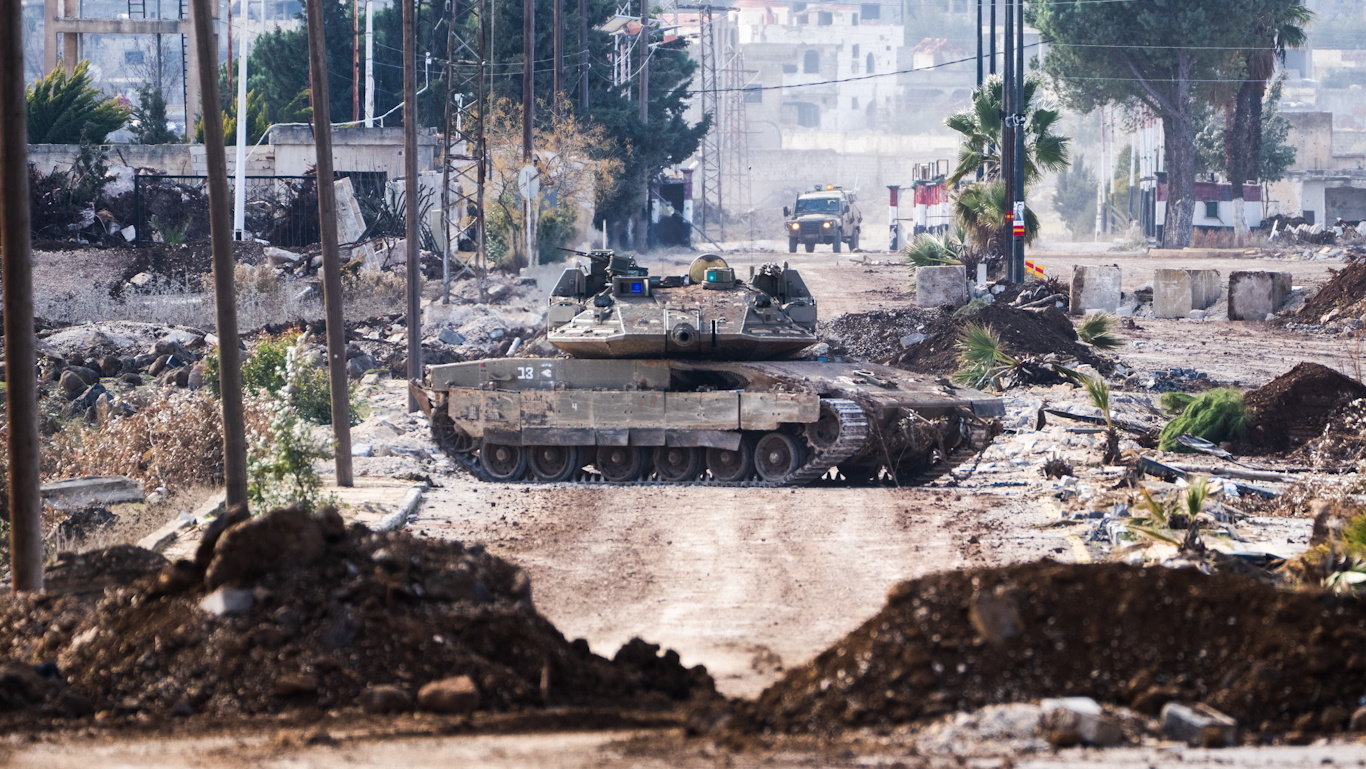
Israel wasted no time following the abrupt collapse of Bashar al-Assad’s regime in Syria. Within hours of Assad’s fall on December 8, 2024, Israeli forces seized the buffer zone separating the Israeli-occupied Golan Heights from the rest of Syria. They raised Israel’s flag atop Mount Hermon.
More than a month later, Israeli troops remain stationed in the United Nations-patrolled area — raiding government buildings and summoning residents for questioning — all the while alleging its presence is necessary to secure Israel’s border as the balance of power shifts in Syria.
Yet a combination of soldier and settler actions as of late question whether Israel has long-term plans for Syria.
Eyeing Syria
The same day as Assad’s ousting and Israel’s invasion, Uri Tzafon, an Israeli settler movement to reoccupy southern Lebanon, wrote on their blog, “In Syria too, we must go at least 10 kilometers [approximately six miles] deep and reclaim the entire Hermon range. Jewish settlement will ensure Israeli control for generations.”
The Nachala settler movement, which has been active in advocating for Israeli resettlement of Gaza, also called for occupying Syria for the sake of security.
The answer to the chaos in Syria – taking territory and Jewish settlement,” Nachala wrote on Facebook on December 8, 2024. “Whoever still thinks it’s possible to leave our fate in the hands of a foreign actor — forsakes Israel’s security!”
The post included a biblical map showing Israel’s territory, including all of Lebanon and most of Syria and Iraq.
While some settlers stressed the need to establish settlements to safeguard security, others were more transparent with their rationale. For instance, Yaakov Socol, a member of Uri Tzafon, wrote in an op-ed on the Israeli right-wing news website Arutz Sheva:
The territories in question are part of the Land of Israel and are full of Jewish heritage sites. We have every right to own these territories and annex them to the State of Israel…This is not about taking over the land of another people, but rather taking over a territory that originally belonged to us…these are our territories by right, and to ensure our continued existence in these territories for the distant future, a Jewish settlement should be established on the ruins of the Arab villages.”
Other social media posts also expressed enthusiasm over further Israeli occupation of Syria.
My Israel, which describes itself as a Zionist Israeli online movement, posted images of soldiers raising the Israeli flag on Mount Hermon with the caption “Syria. The nation of Israel lives” in Hebrew.
סוריה.
עם ישראל חי pic.twitter.com/vI7D7HUrjV
— ישראל שלי | MyIsrael (@MyIsraelorgil) December 11, 2024
A video of Orthodox Jews praying in what they alleged was the Syrian village of Hader circulated online.
According to Israeli news site The Hottest Place in Hell, the video was shared in Uri Tzafon’s WhatsApp group with members confused about how the activists entered a closed military area. One Uri Tzafon member wrote that they “probably entered with the help of one of the soldiers in the area, it happens all the time. They wouldn’t have entered without the cooperation of soldiers.”
הדפסת ולימוד ספר התניא בבית חב”ד החדש בכפר חדר שבחבל הבשן (סוריה) המשוחרר.
זו ארצנו כולה! לכבוש וליישב!! pic.twitter.com/hyck0n36Vm
— עמישב מלט (@amishav_) December 11, 2024
The website also detailed how the ideology of messianic soldiers is infiltrating Israel’s army. Footage of reservists carrying a Torah scroll into the post they were staying at in Syria went viral across Israeli social media.
Speaking to The Hottest Place in Hell, one soldier said how, after they entered Syria, another soldier said on the radio that “he was very excited that we were here, and signed off with ‘Blessed are you, sir, expanding Israel’s borders.’”
“There is no gap that religion is not pushed into, but in Syria, it is simply an expression of our foothold there,” the anonymous soldier told The Hottest Place in Hell.
In 2024, speculation began to abound on whether Israel’s war goal wasn’t just eliminating Hamas but also included establishing an empire in the Middle East, as Israeli forces headed into Lebanon and now Syria.
“Under the fog of all of this, there’s this empire-building project, which is like greater Israel on steroids in a way,” Shaul Magid, a Jewish Studies professor at Harvard Divinity School, told MintPress News.
The definition of Greater Israel varies, but generally, it refers to the state of Israel expanding its territory to include what proponents consider the historic land of Israel according to the Bible. Some define this as having Israeli sovereignty from the Mediterranean Sea (including Gaza) to the occupied West Bank and sometimes the Sinai Peninsula and occupied Golan Heights. Some attribute the term to envision it extending from the Euphrates to the Nile rivers.
“Mount Hermon will either become permanently or formally [occupied] in the sense that it will be considered sovereign Israeli territory,” Palestinian-Dutch analyst Mouin Rabbani told MintPress News.
Rabbani explained, however, that from the state’s perspective, capturing this fertile, water-rich area is less about ideology but rather about exerting pressure.
“Israel has seized the highest peak in Syria, which is very valuable for military and intelligence purposes,” Rabbani said. “The main reason it’s being done is not so much ideological, territorial expansion, greater Israel, and so on, but primarily in order to establish Israeli hegemony in the Middle East and particularly decisive Israeli influence over what happens next in Syria.”
Who is behind the movement to ‘settle’ Syria?
The Uri Tzafon movement was established to commemorate Yisrael Socol, an Israeli soldier killed in Gaza in January 2024. Socol advocated for settlements in the besieged Gaza Strip but also dreamed of conquering Lebanon.
“Even when he went to fight the enemy in Gaza and take possession of the Gaza Strip, he knew that the entire war in the south was only a prelude to the great war in the north,” Uri Tzafon’s website reads. “He saw the Gaza war in the shadow of the approaching Lebanon war, and both in the shadow of the Temple Mount.”
His family even engraved the following on his tombstone: “I saw you, Gaza, in the shade of the cedars of Lebanon.”
Following his death, Amos Azaria, a professor at Ariel University located in the Israeli settlement of Ariel, visited Socol’s family and, through their discussions, decided to found the Uri Tzafon movement in Socol’s honor.
Nachala was founded by Rabbi Moshe Levinger, a leader in Gush Emunim (Bloc of the Faithful), a messianic Jewish movement promoting the settlement of the Palestinian territories occupied in 1967. Prominent settler-activist Daniella Weiss now leads the movement. The organization made headlines in 2021 for establishing the Evyatar outpost in the northern West Bank and, in the wake of Israel’s war on Gaza, has found a new target — resettling Gaza.
While Uri Tzafon is listed in Israel’s Registrar of Associations, the organization hasn’t filed any financial documents, given how new it is. According to a review by MintPress News, Uri Tzafon hasn’t led any donation campaigns except for crowdfunding a children’s book encouraging Jewish settlement in southern Lebanon.
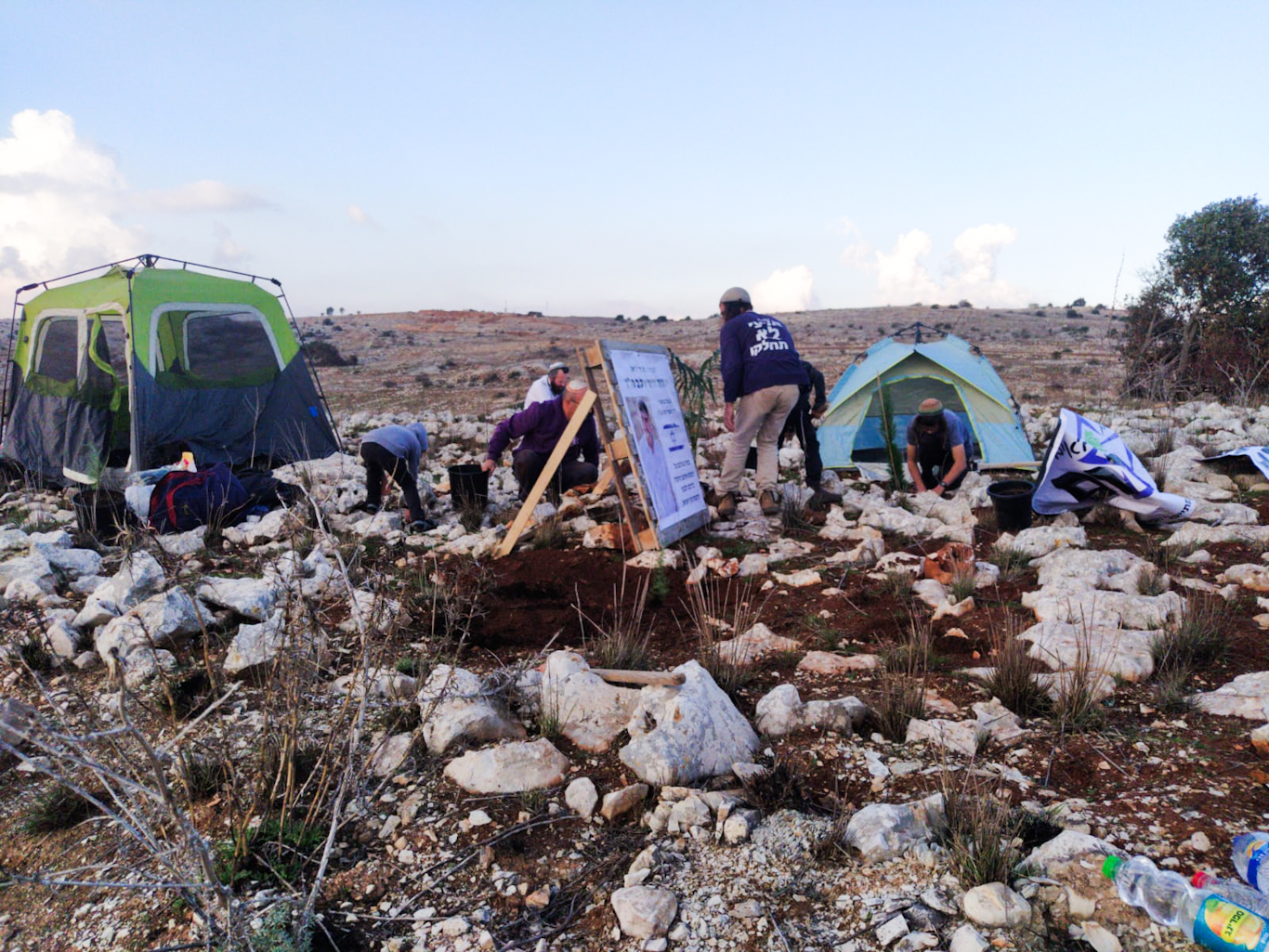
Israeli settlers from the Uri Tzafon movement set up tents in what they claimed is southern Lebanon on December 7, 2024. Photo | Uri Tzafon Movement
On the other hand, Nachala is funded in a myriad of ways. The settlement movement receives money through its financial arm, Geula Titnu La’aretz (in English: “the land shall be redeemed”), a registered non-profit in Israel’s Registrar of Associations, through its public benefit company, Hakupah Haleumit Lebinyan Eretz Yisrael or “The National Fund for the Building of the Land of Israel,” and through donations on crowdfunding websites, Charidy and Peach.
Geula Titnu La’aretz hasn’t filed annual reports with the Israeli registrar since 2021 when it received NIS 709,513 (approximately $196,000) in domestic donations. According to its recent filings, Hakupah Haleumit Lebinyan Eretz Yisrael received nearly $91,430 in 2022, with almost 40% coming from abroad.
On Charidy, donations can be made to Seu Ziona Nes Vedegel, an organization promoting Jewish settlement. According to its Israeli registrar page, it raised nearly one million dollars in donations in 2023. The name refers to a Zionist pioneering song from the early days of the Jewish settlement of Palestine, “Bear Your Banner to Zion.” While little is known about Seu Ziona Nes Vedegel, it does share an address and phone number with Geula Titnu La’aretz.
MintPress News contacted Charidy and Peach on why it allows campaigns advocating for Jewish settlement in occupied territory — which is against international law — on its platforms but did not receive a response by the time of publication. Uri Tzafon and Nachala also did not respond to MintPress News’ requests for an interview.
From military bases to ‘settler outposts’
A week after Assad’s fall in Syria, Israel’s government approved plans to expand Israeli settlements in the occupied Golan Heights, which Israel seized during the 1967 Six-Day War. Netanyahu said he wants to double the settler population in the Golan, which currently has a settler population of approximately 30,000 concentrated in 35 settlements.
While settlement expansion in the Golan has received significant support from Israel’s parliament, so too has the idea of settling Syrian land beyond the Golan.
“The State of Israel must seize a security belt against the new jihadist regime in Syria that will include the Syrian Mount Hermon and a significant area close to the border,” Israeli parliamentary member Zvi Sukkot said. “The political and military price is probably lower than ever… the security benefit is enormous.”
On X, Israel’s Diaspora Affairs Minister Amichai Chikli, who is a member of Netanyahu’s Likud party, wrote: “Israel must urgently renew its control over the peak of Mount Hermon and establish a new defense line based on the 1974 ceasefire line. Jihadists must not be allowed to establish themselves near our communities.”
הארועים בסוריה רחוקים מלהיות סיבה למסיבה. למרות הריברנדינג של הייאת תחריר א-שאם ומנהיגה אחמד א שרע, בשורה התחתונה מרבית סוריה נמצאת כעת בשליטת ארגוני בת של אל- קאעידה ודעאש.
החדשות הטובות הן התחזקות הכורדים והרחבת שליטתם בצפון מזרח המדינה (מרחב דיר א-זור).
אופרטיבית על ישראל… pic.twitter.com/AJG3fhFrji
— עמיחי שיקלי – Amichai Chikli (@AmichaiChikli) December 8, 2024
And in June 2024, at Uri Tzafon’s “First Lebanon Conference,” Dr. Hagi Ben Artzi, Netanyahu’s brother-in-law and Uri Tzafon member, told participants that Israel’s borders should be expanded to include Syria — according to what was promised in the Bible.
“We don’t want even one meter beyond the Euphrates River. We are humble. [But] what we were promised, we must conquer,” Ben Artzi said.
Southern Lebanon and southern Syria have long been part of the Zionist vision of a Jewish state. In fact, Zionist leaders were in conversation with the United Kingdom and France to include these areas while working to establish a state.
“They said they need these lands to absorb hundreds of thousands of Jews from all over the world,” Nizar Ayoub, founder and director of Al-Marsad, an Arab rights center in the Golan Heights, told MintPress News. “Southern Lebanon and southern Syria are very crucial for the future state of Israel.”
Al-Marsad researcher Dr. Nazeh Brik pointed out that military control often serves as a prelude to eventual Israeli settlement — just as it’s done in the West Bank and Golan.
“Most of the settlements began as a military base, and then it became a civilian settlement,” Brik said.
Local Syrian sources say Israel has expanded beyond the buffer zone to occupy the villages of Arab al-Sudi, Shabraq, Sihyun, Nofa and the east of the town of Sayda. Israeli forces have also taken control of Syrian water sources, including the Saharan al-Julan Dam. Taking control of the water supply is part of the settlement strategy, Ayoub explained.
“Israel won’t leave the new occupation area,” Ayoub said. “They need new settlers to control the land and the water. So they need a new settler power to continue controlling the area.” And with Uri Tzafon and Nachala, they already have Israelis ready to take up that mantle.
Feature photo | An Israeli tanks blocks a road leading to the Syrian town of Quneitra, Jan. 5, 2025. Mosa’ab Elshamy | AP
Jessica Buxbaum is a Jerusalem-based journalist for MintPress News covering Palestine, Israel, and Syria. Her work has been featured in Middle East Eye, The New Arab and Gulf News.
2025 is promising to be a crucial year in the history of West Asia. Just weeks have passed since the ouster of Syria’s Bashar al-Assad and his replacement with pro-Western leader Abu Mohammed al-Jolani.
Syria was a key member of the so-called “Axis of Resistance” – a coalition of actors opposing Israel and its actions. What will Assad’s departure mean for Palestine, especially given Jolani’s overt friendliness with Israel? And what is in store for Lebanon and Hezbollah now, given their new government?
MintPress director Mnar Adley is joined by returning guest, Ghadi Francis. Ghadi is an author, journalist, and war correspondent who has covered the situations in Syria and Palestine in great detail. Born in Lebanon, she is the author of the book “My pen and pain: One hundred days in Syria” (2012).
https://libya360.wordpress.com/2025/01/ ... land-grab/
*****
New Syrian govt issues first crude tender, seeking to alleviate electricity shortages
The US occupation of Syria's oil fields and US economic sanctions have caused fuel and electricity shortages in the country over the past decade
News Desk
JAN 22, 2025

( Delil Souleiman/AFP via Getty Images, FILE)
Syria's new administration has issued its first tenders to buy crude and refined products since the fall of Syrian president Bashar al-Assad's government in December, as fuel shortages continue to cause electricity blackouts in the country, global market intelligence firm Argus reported on 22 January.
The new government, led by the former Al-Qaeda affiliate Hayat Tahrir al-Sham (HTS), is seeking 3mn bl of light crude for the 140,000 b/d Banias refinery and 1.2mn bl of heavy crude for the 110,100 b/d Homs refinery. The deadline for bidding is 27 January.
The Banias refinery is undergoing maintenance at several of its production units after being taken offline last month because of a lack of crude supplies.
Syria's new government has also issued its first import tender for refined products — 80,000t of 90 Ron gasoline, 100,000t of 10ppm sulfur gasoil, and 100,000t of fuel oil.
A tender seeking 66,000t of Liquefied Petroleum Gas (LPG) has been issued as well, Argus added.
Before HTS captured Damasus, making HTS leader Ahmad al-Sharaa (previously Abu Mohammad al-Julani) the country's de facto leader, Syria relied heavily on Iran for its oil supplies.
Argus notes that Iran's crude exports to Syria averaged around 55,000 b/d in January–November 2024 and around 80,000 b/d in 2023, according to trade analytics firm Kpler. Iran was also sending around 10,000-20,000 b/d of oil products to Syria in recent years, according to consultancy FGE.
But Iran halted crude deliveries to Syria once HTS took control of the country last month, putting Damascus under pressure to find new suppliers to alleviate the shortages, which make it difficult to provide electricity to Syrians.
Most Syrian homes receive just a few hours of electricity from the state each day. Syrians rely on generators to fill the gap or go without electricity for the remainder of the time.
Syria began experiencing oil and fuel shortages after it lost its major oil fields, located in the eastern Deir Ezzor governorate, during the US-backed covert war on the Syrian government that began in 2011.
Syria first lost its major oil fields to the Nusra Front (which later became HTS) in 2013. ISIS then took control of the fields in 2014, followed by the US military and Kurdish-led Syrian Democratic Forces (SDF) in 2017.
US and EU imposed sanctions made it difficult for Syria to import crude from neighboring countries, leaving Syria reliant on Tehran, which is also under heavy US sanctions.
The US and SDF continue to control the Deir Ezzor fields, which they held as leverage against Assad's government. US and Kurdish forces steal Syrian oil, smuggling it to Iraq, then Turkiye, and finally to Israel.
Sharaa and HTS have called for the SDF to disband and allow northeast Syria to return to Syrian state control.
“Recent political developments have indicated that Qatar, Saudi Arabia, and Turkiye could play a role in solving Syria's crude and refined products shortage,” FGE analyst Palash Jain said.
Sources speaking with Argus say that “Saudi Arabia is willing to help for a limited period, but discussions remain in a preliminary phase and are light on details,” and that Riyadh is waiting to hear more from the Syrians on their energy needs and requirements.
The latest tenders come just two weeks after the US waived sanctions that had previously prohibited energy trade with Syria, Argus added. The waiver, issued on 6 January, is valid until 7 July.
https://thecradle.co/articles/new-syria ... -shortages















